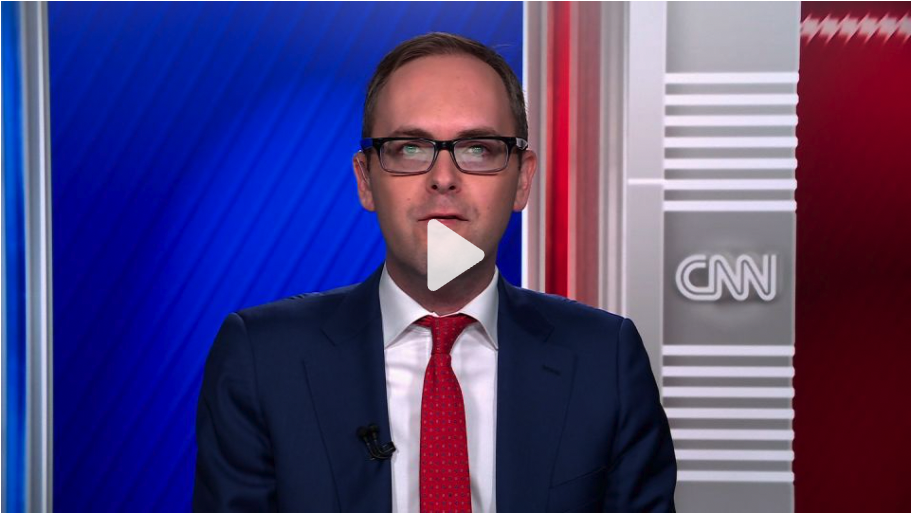Outlets are fact-checking the debate. Here's how we can help.

Of the many fact-checks that circulated this morning, CNN reporter Daniel Dale's is one of the more efficient. In a 4:13 video he fact-checks the entire debate – President Biden's statements first (at least nine falsehoods, per Dale) then former President Trump's (over 30 falsehoods). Click here to view. It's balanced, articulate and worth your time if you're curious or were unable to watch.
If you prefer to read, here are some articles in English and Spanish:
- Fact-checking CNN's presidential debate: How accurate were Joe Biden and Donald Trump? (Politifact, which is part of the Poynter Institute)
- Debate fact-check: Por qué la porpuesta fiscal de Biden no es "multiplicar los impuestos de todo el mundo por cuatro," como aseguró Trump (Debate fact-check: Why Biden's tax proposal is not "multiplying everyone's taxes by four" as Trump claimed) (Factchequeado – thanks to Norma Rosso for these links!)
Our focus is on the spread of mis- and disinformation and their impact on people and democracy. So today we're asking: What are some potential impacts of the falsehoods shared with tens of millions of viewers on national television last night?
- A repeated falsehood is far more damaging than a one-time lie. The "illusory truth effect" effect says that when we see a piece of information repeatedly we are likely to think it's true.
For example, the immigration-related claim that Biden has allowed "millions of people to come in here from prisons, jails and mental institutions," is false. But versions of this claim have been repeated so many times that its exposure overrides its validity, so to speak. To name just a few recent occurrences, in New York City on May 29 Trump said Biden “is letting millions of people from jails, from prisons, from insane asylums, from mental institutions, drug dealers pour in" – here's PolitiFact's report from that speech. Trump shared this message on May 21 in Florida as well. Followers will see the claim numerous times, often won't see the fact checks and may well absorb it as true. Since it carries shock value, they may repeat or share the claim themselves as well. - Falsehoods can also harm people and their records. Consider the outrageous claim that the former Virginia governor Ralph Northam supported abortions up to nine months and even after birth. It stemmed from an interview on WTOP in 2019 where Northam answered a question about an infant born with severe deformities:
“If a mother is in labor, I can tell you exactly what would happen,” Northam says in a video from the 2019 interview being shared online. “The infant would be delivered, the infant would be kept comfortable, the infant would be resuscitated if that’s what the mother and the family desired. And then a discussion would ensue between the physicians and the mother.” (Associated Press, April 11, 2024)
Imagine how painful for Northam, a physician, to be accused of supporting the murder of newborns. Factchequeado addressed this one also.
- When falsehoods become a flood it's impossible to fact-check them live. Many are saying CNN should have fact-checked in the moment, but when the volume of falsehoods is high it can't be done. No chyron (the words at the bottom of the TV screen) operator is that nimble and I can't think of a single debate moderator or format that could do so effectively. Even if Daniel Dale himself was moderating and had the facts at the ready, the debunking would have taken over the production.
- From a communications standpoint, those with slower speaking styles are faltering in today's political and social media climate. From university presidents to Biden last night, slower speakers are being railroaded by quick-talking opponents, and content generators love to showcase it on social media afterward. You may have seen clips about one politician or thought leader "destroying" another during testimony or a TV segment. Entities sponsoring events like last night's must keep this in mind if they want a fair conversation.
For these reasons and more, fact-checks on their own are too slow and after-the-fact to effectively counter a flood of falsehoods. We can, however, use those fact-checks to best advantage. If you missed it in Wednesday's post, an evidence-based technique we can deploy today (I mean literally, today) is called "prebunking." From the Mental Immunity Project website:
"A prebunk is a preemptive refutation of a false claim. Prebunks essentially warn people that a false narrative is circulating. They might mention the false narrative, explain why it’s wrong, and urge people not to fall for it."
The idea is to expose people to a fact-checked falsehood before they’ve come to believe it. It's ideal to do so after it first circulates, but that's obviously not practical in our always-online environment; just being proactive will do.
So: Consider being thoughtful in your post-debate interactions and where possible, sharing the fact-checks above (or this article) with friends and family. For example:
- If you're talking with someone in person. you can avoid engaging with cynical, snarky takes and say "What matters to me is the facts. I read a piece that tallied the falsehoods and debunked every one." Give an example of a falsehood from either side that particularly bothers you then offer to share the fact-check itself via text or Messenger.
Meanwhile – what are voters around the country thinking and feeling today? Here's the Associated Press on that, in case you missed it.
We have much to do to restore trust in leaders, parties, elections and democracy overall in the U.S. Thank you for remaining aware, and for your contributions to that end.
Threads: @dtroust
Our mailing address: P.O. Box 21456, Washington, DC 20009


